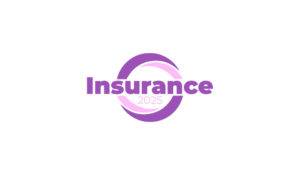2. Types of business insurance
When it comes to protecting your business, insurance is an absolute must-have. But with so many different types of insurance available, it can be difficult to know which policies are right for your business.
The most common types of business insurance include general liability insurance, property insurance, professional liability insurance, and workers’ compensation insurance.
General liability insurance protects your business from claims of injury, property damage, and negligence. This type of insurance is essential for any business that interacts with customers or clients on a regular basis.
Property insurance covers damage or loss to your business property, including buildings, equipment, and inventory. This type of insurance is crucial for businesses that own or lease physical property, as it can help cover the costs of repairs or replacement in the event of damage, theft or vandalism.
Professional liability insurance, also known as errors and omissions (E&O) insurance, covers claims of negligence or mistakes made by you or your employees in the course of doing business. This type of insurance is particularly important for businesses that provide professional services, such as legal or financial advice, as these types of businesses are more likely to face lawsuits.
Finally, workers’ compensation insurance provides benefits to employees who are injured or become ill as a result of their work. This type of insurance is required by law in most states and can help cover the costs of medical bills and lost wages for injured employees.
Overall, choosing the right types of insurance for your business depends on a variety of factors including the size and type of your business, your industry, and your specific risks. It’s important to work with a reputable insurance provider to determine your business’s unique needs and ensure you have adequate coverage to protect your business and its assets.
3. Why your business needs insurance
Running a business can be unpredictable, and unfortunately, accidents can happen. Whether you’re a small business owner or running a larger company, insurance is essential to protect your business from financial ruin if an unexpected event occurs. Insurance can help cover the costs of damage or loss to your business assets, including your equipment, inventory, and property. It can also protect you from liability claims, such as a customer getting injured on your premises or a product malfunctioning and causing harm.
Without insurance, you could be left with a hefty bill to cover the costs of any damage or loss, which could put your business at risk of closure. Insurance helps to provide you with peace of mind, knowing that you’re protected should the worst happen. It’s also important to note that some types of insurance, such as liability insurance, may be required by law, depending on where your business operates.
Investing in insurance is a smart decision for any business owner. It can help to ensure that your business can continue to operate even in the face of unforeseen circumstances, and can help to preserve your company’s financial stability. Don’t wait until it’s too late – make sure your business is protected with the right insurance coverage today.
4. Assessing risk and coverage needs
Before purchasing any type of insurance policy, it’s important to assess your business’s risk factors and coverage needs. This is because different businesses have different risks and insurance needs, and getting the right coverage can make a huge difference in the event of an unforeseen circumstance.
Start by identifying the risks that your business faces, such as theft, property damage, or liability lawsuits. Then, determine the likelihood of these risks occurring and the potential financial impact they could have on your business.
Once you have a clear understanding of your business’s risks, you can begin to research and compare different insurance policies to find the coverage that best fits your needs and budget. This may include policies such as general liability insurance, property insurance, professional liability insurance, or cyber liability insurance, depending on your business’s specific risks.
It’s also important to review your coverage needs regularly and make adjustments as necessary. As your business grows and evolves, your risks and coverage needs may change, so it’s important to stay up-to-date and ensure that your insurance coverage continues to protect your business adequately.

